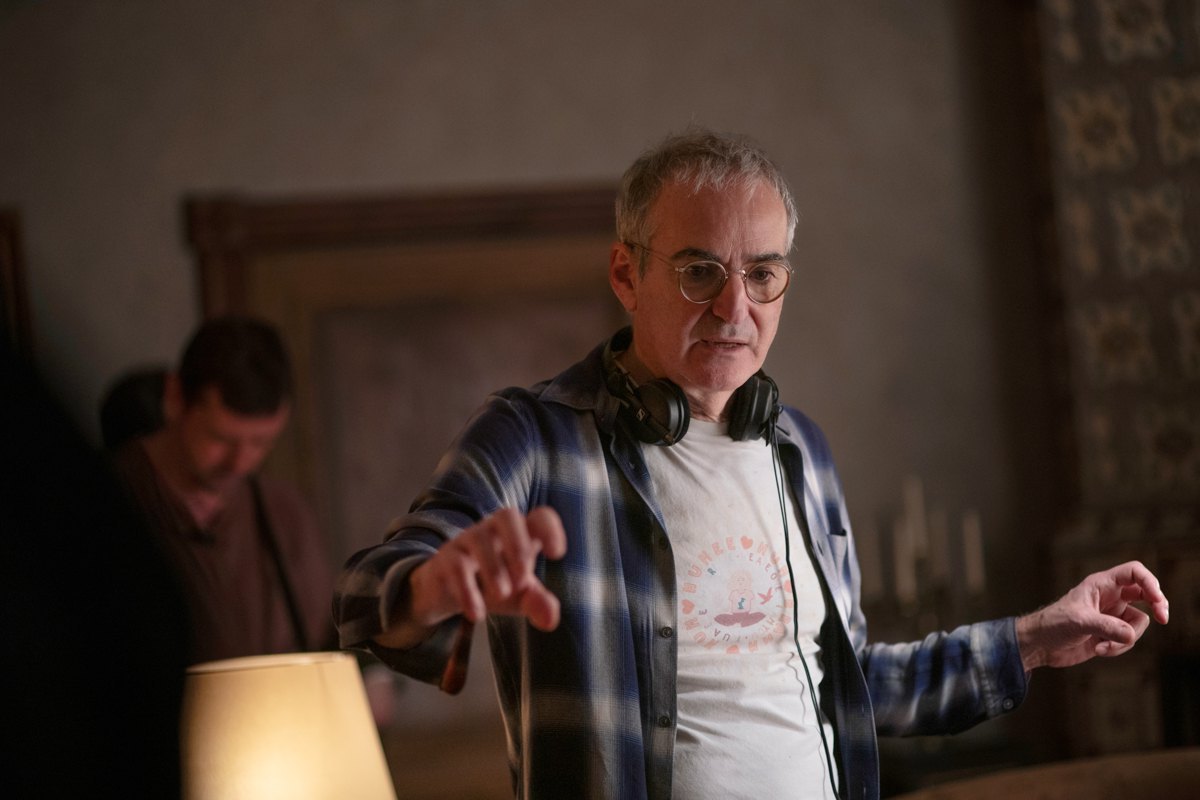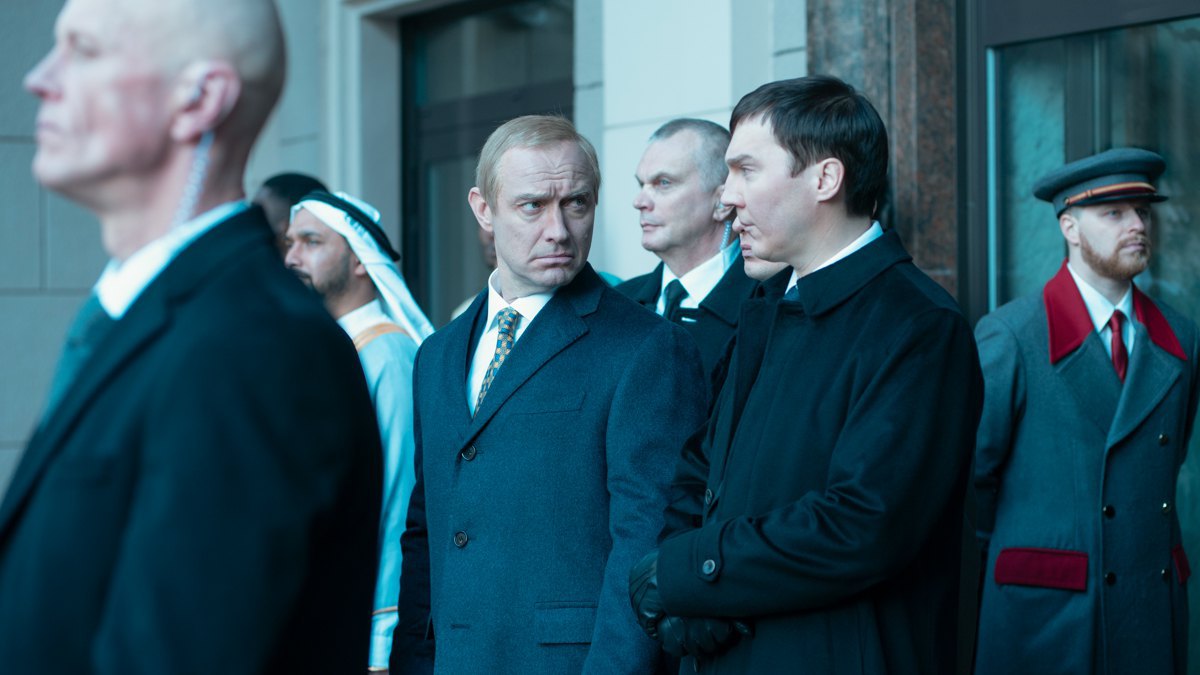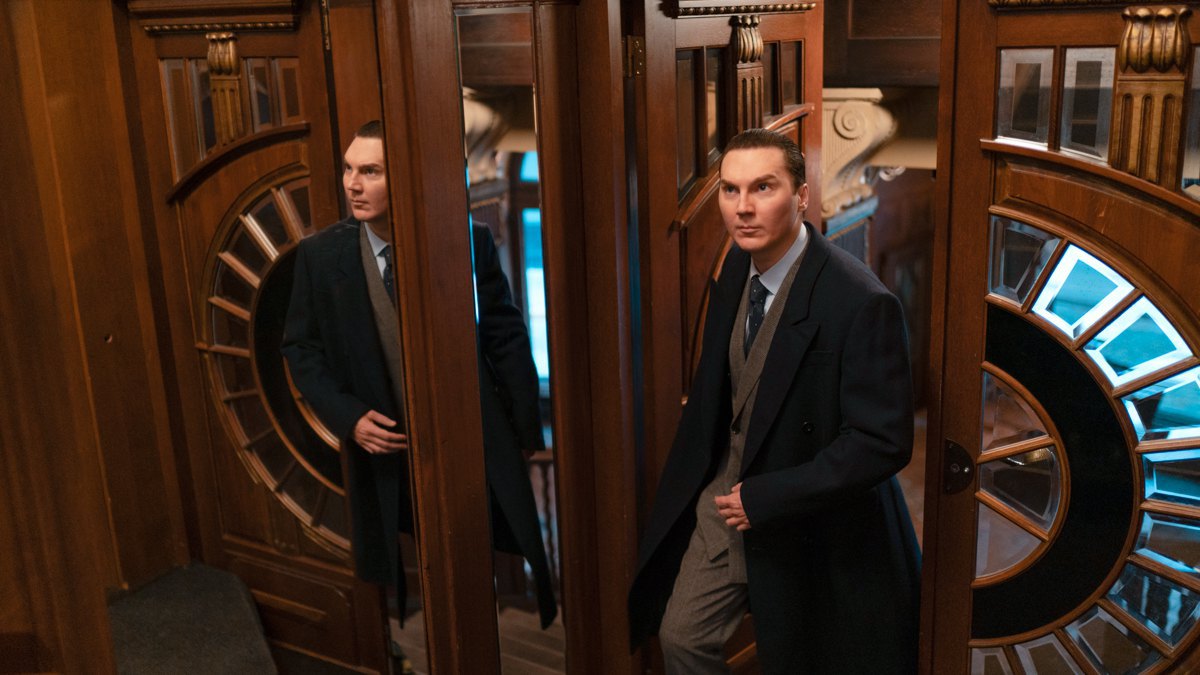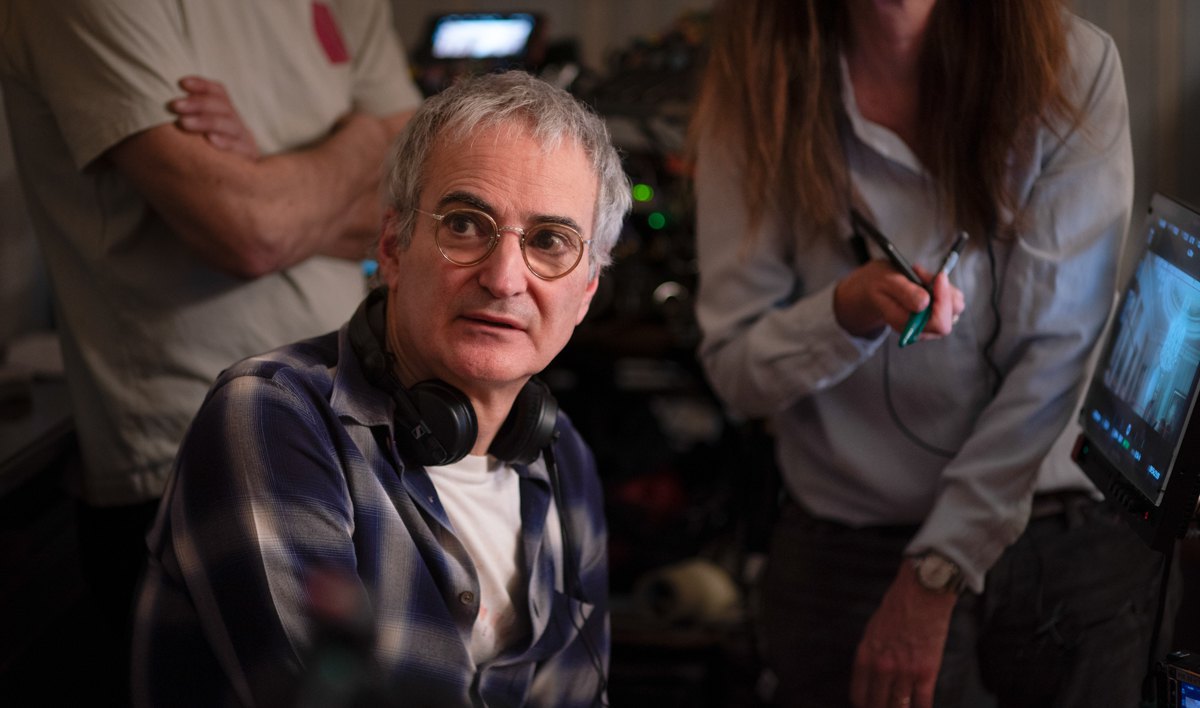
Everyone was eagerly awaiting this film. And not because it was directed by a great filmmaker – like Guillermo del Toro’s Frankenstein, also selected for the main competition at Mostra. The new work by festival regular Olivier Assayas is the first notable feature film with a large international production and famous actors that tells the story of the modern Russian government. And what kind of creature they would create from it remained the main intrigue.
The once caricatured image of Hitler in Charlie Chaplin’s humanistic comedy The Great Dictator became a canon in popular culture precisely because this film was the first talented and articulate political statement about the Third Reich in cinema. Of course, it was foolish to assume that Assayas’s well-known mediocrity could reflect even a glimmer of the genius of ‘The Great Silent One’ – but when history raises the stakes, hope dies last. Unfortunately, here it died before Putin.

The Wizard of the Kremlin is a film adaptation of the literary debut of the same name by French-Italian political scientist Giuliano da Empoli, which tells the story of Vadim Baranov’s life. Baranov does not exist in reality – he is a composite quintessence of all the “decision-makers” of the Moscow apparatus, the personification of Russian cynicism, which, as we know, is worse than cannibalism. The main character is based on the “architect” of the 2014 war, former Putin ideologue Vladislav Surkov; but this character also bears resemblance to Konstantin Ernst, the long-standing head of the propaganda channel Channel One, and Sergei Dorenko, the “television killer” of the 1990s.
The film begins as follows: in 2021, an American journalist arrives in Moscow and, while scrolling through his Twitter feed in his hotel room, responds to a mysterious account with a quote from, forgive me Lord, Zamyatin’s We, continuing it. The stranger invites the reporter to visit him and turns out to be the same quasi-Surkov. He wants to tell his guest “where the attack was prepared.”

In short, it was prepared in the government canteen with “salmon pies” costing 50 kopecks, which the descendants of the Soviet elite miss so much. The filmmakers construct a kind of “magical” Russia, in which war crimes and political crimes are merely Faustian sins, entangled in the intricacies of the “mysterious soul.” And Putin (the poorly made-up charismatic Jude Law), nicknamed Tsar in the spirit of the New York Times explainers, explains all his actions to his subordinates and, with a British accent, offers to “wipe out the shitter”. The role of Baranov is played by Paul Dano, and although his bloated physiology and ugly physiognomy cause aesthetic disgust, the ensemble of acting qualities still plays on the lyrical meanness that the viewer is accustomed to sympathising with for no reason.
A few festival days earlier, Guillermo del Toro, in his interpretation of Mary Shelley’s novel, insisted that monsters should be befriended, because they are only terrifying in appearance. Assayas seems to have a similar proposal, although his monster friends are, to put it mildly, not exactly pleasant. Berezovsky’s LogoVAZ, the war in Chechnya, the Kursk submarine accident, the Orange Revolution, Khodorkovskyy’s arrest (for some reason renamed Sidorov), the bribery of the local opposition and, finally, the invasion of eastern Ukraine in 2014 – in The Wizard, these are just twisted letters laid out in the hackneyed phrase “it’s not us, it’s life.”

We can only hope that few people will believe this nonsense.
At the end of Baranov’s monologue, the journalist exclaims: “You have the blood of Ukrainians on your hands!” In response, Baranov silently shows his white palms. Such is the magic of the Kremlin.








